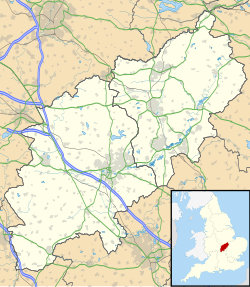| Gibraltar Barracks | |
|---|---|
| Northampton, Northamptonshire | |
 A school house which originally formed part of Gibraltar Barracks | |
| Site information | |
| Type | The former school building which formed part of the barracks complex |
| Owner | Ministry of Defence |
| Operator | |
| Location | |
| Coordinates | 52°14′46″N0°53′53″W / 52.246°N 0.898°W |
| Site history | |
| Built | 1797 |
| Built for | War Office |
| In use | 1797–1969 |
| Garrison information | |
| Occupants | Northamptonshire Regiment |
Gibraltar Barracks is a former military installation at Northampton in Northamptonshire.
